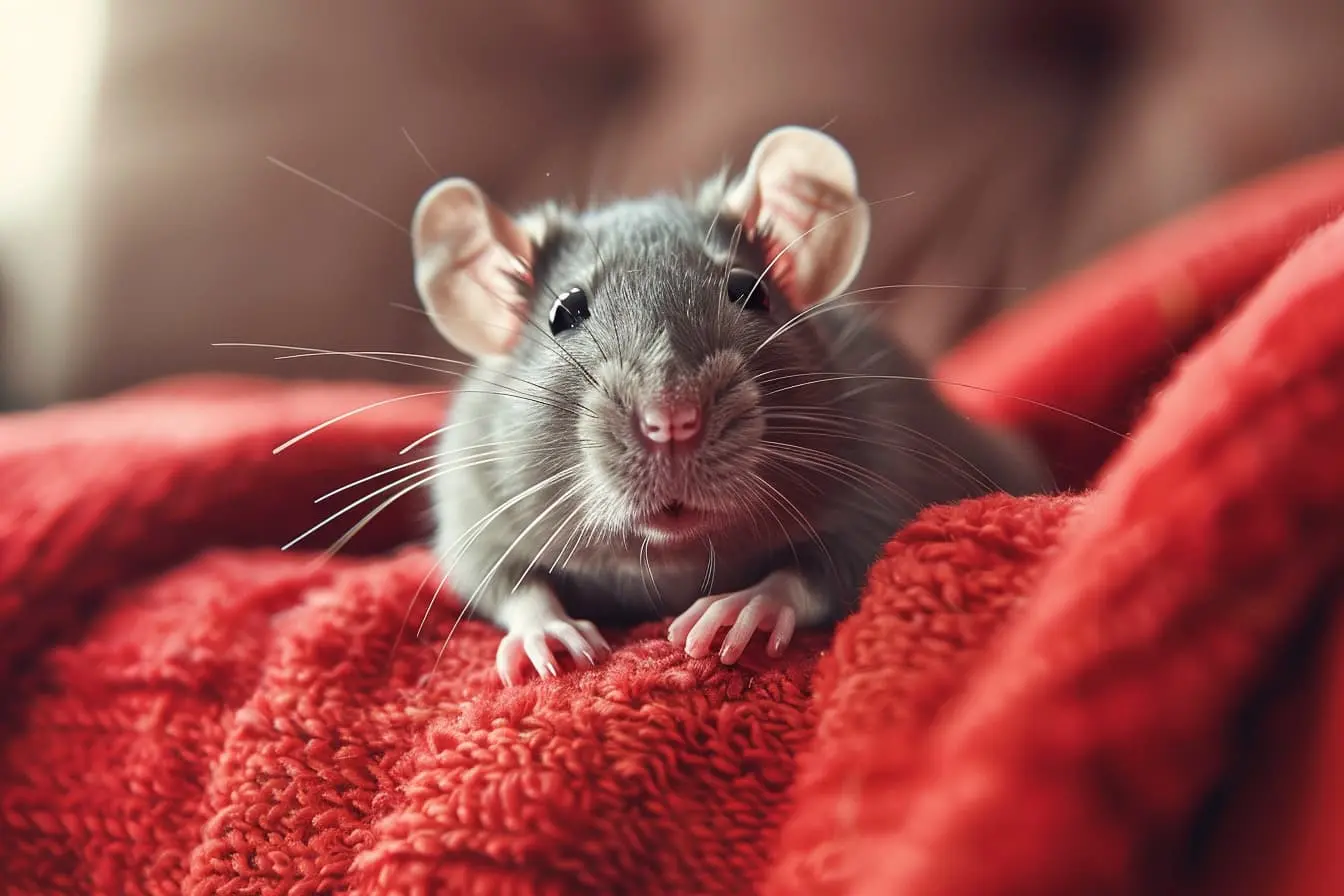
The Top 25 Rat Care Questions Answered by UK Vets
Rats are intelligent, social animals that make fantastic pets for those willing to give them the care and attention they deserve. UK vets often field a wide range of questions from current and prospective rat owners alike. Here, we compile and answer the top 25 most common queries to ensure your furry friends live their best lives.
Diet and Nutrition
1. What should I feed my pet rat? Offer a balanced diet consisting of commercial rat pellets, supplemented with small portions of fresh fruits and vegetables. Avoid sugary and fatty foods.
2. Can rats eat chocolate? Chocolate should be avoided as it contains theobromine, which can be toxic to rats in large amounts.
3. How often should I feed my rat? Feed adult rats twice a day, providing fresh food and water at each feeding.
Health Care
4. How often should my rat see a vet? Annual health checks are recommended, or sooner if you notice any signs of illness.
5. Do rats need vaccinations? No, rats do not require vaccinations, but regular health checks can help catch and prevent issues early.
6. What are common health problems in rats? Respiratory infections, tumours, and skin parasites are among the most common issues.
Housing and Environment
7. What type of cage is best for a rat? A large, multi-level cage with solid flooring, plenty of ventilation, and space for exercise and enrichment.
8. How often should I clean my rat's cage? Perform a full clean weekly, with spot cleaning as needed to maintain a clean environment.
9. Can rats live together? Yes, rats are highly social and do best with companions of the same sex to prevent breeding.
Behaviour and Socialisation
10. Why is my rat chewing the cage bars? Bar chewing can indicate boredom or the need for more exercise. Ensure they have ample space and enrichment.
11. How can I tame my rat? Frequent, gentle handling and interaction can help tame your rat. Offering treats can also build trust.
12. Do rats bite? Rats generally do not bite unless scared or threatened. Socialisation from a young age can help prevent biting.
Grooming and Handling
13. Do I need to bathe my rat? Rats are clean animals and rarely need baths. Spot clean if necessary, but avoid full baths which can cause stress.
14. How do I handle my rat safely? Support their body with both hands, never picking them up by the tail.
Nutritional Health Issues
15. Can rats become overweight? Yes, if overfed and under-exercised. Monitor their diet and ensure they have space and time to exercise.
General Care
16. How long do rats live? The average lifespan of a pet rat is 2 to 3 years, though some may live longer with optimal care.
17. Can rats be litter trained? Yes, with patience. Place a litter tray in their preferred bathroom corner, and use positive reinforcement to encourage use.
18. What should I do if my rat escapes? Close off the area, remove hazards, and set up a safe haven with food and water to lure them back.
19. How can I enrich my rat's cage? Add tunnels, hammocks, toys, and climbing opportunities. Rotate these regularly to keep your rat engaged.
20. Are rats nocturnal? Rats are more crepuscular, meaning they are most active at dawn and dusk, though they adapt to human schedules.
21. What are signs of stress in rats? Pacing, aggression, over-grooming, and changes in eating or sleeping habits can indicate stress.
22. Can I take my rat outside? Outdoor excursions can be enriching but should be done in a secure, enclosed space to prevent escape or exposure to predators.
23. How do I know if my rat is happy? A happy rat is curious, active, and engages in regular grooming and social interactions with cage mates or humans.
24. What foods are toxic to rats? Avoid blue cheese, raw beans, onion, and citrus fruits for male rats, as these can be harmful.
25. How can I tell the sex of my rat? Males have larger, more obvious testicles, especially as they mature. Females have nipples that are more visible from a younger age.
Understanding and addressing these common questions can help ensure your rat enjoys a healthy, stimulating life as part of your family.
Vets near you
Speciality vets
- Aquatics vet specialists
- Birds vet specialists
- Camelids vet specialists
- Cats vet specialists
- Cattle vet specialists
- Deer vet specialists
- Dogs vet specialists
- Equines vet specialists
- Exotic vet specialists
- Goats vet specialists
- Pigs vet specialists
- Poultry vet specialists
- Sheep vet specialists
- Small Mammals vet specialists
- Wild vet specialists
Vet facilities
- Accessible by public transport
- Blood testing
- Car park nearby
- Client car park
- Dentistry
- Diagnostic imaging
- Disabled public access
- Flea and worm treatments
- Microchipping
- Mobile services
- Neutering
- Open at weekends
- Out-of-hours service
- Referral interests
- Referrals only
- Street parking outside
- Toilets available
- Vaccination clinic



